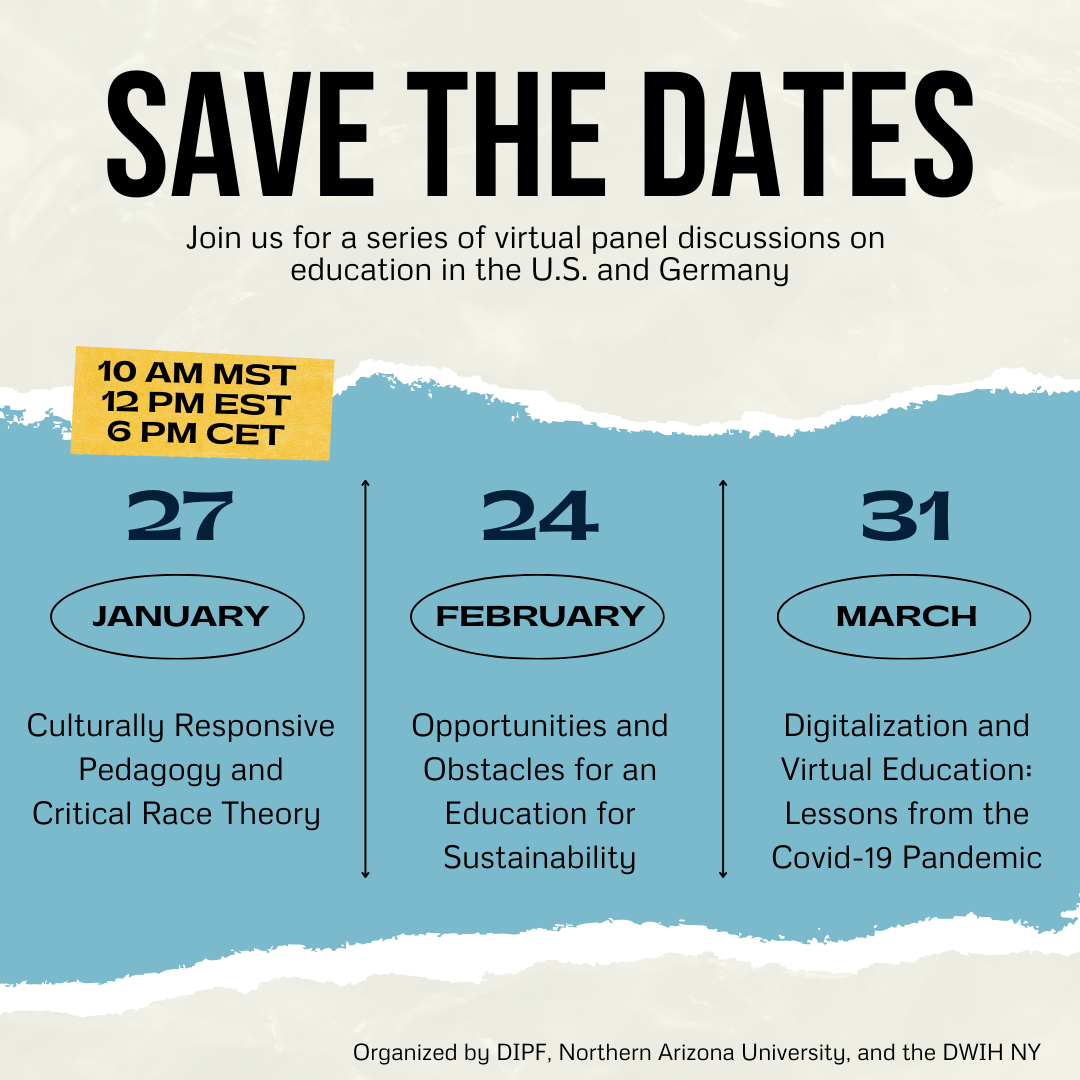Culturally Responsive Pedagogy and Critical Race Theory
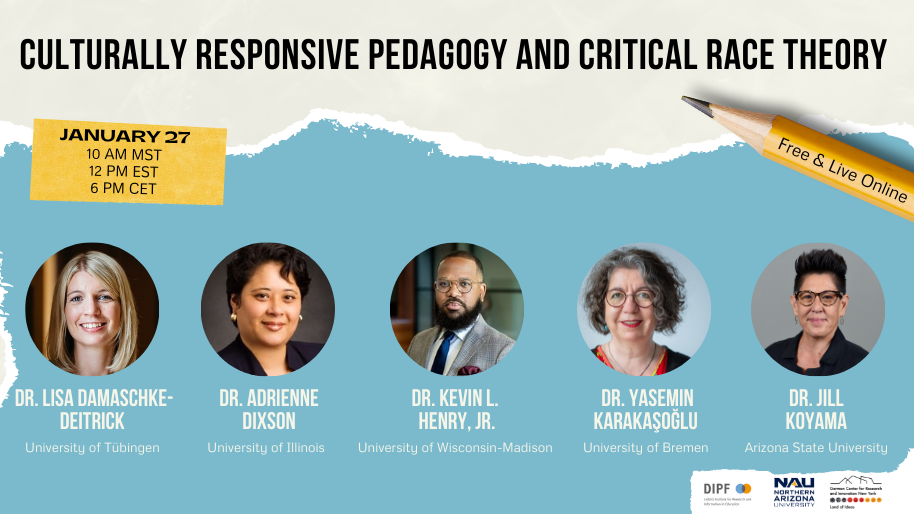
In many nation states, including the United States and Germany, schools serve increasingly culturally diverse students with the goal to fully prepare them for living morally, creatively, and productively as citizens of a democracy. This is a steep task and questions about how educators can best serve the needs of their diverse students while creating and upholding common values are more important than ever.
Join our panel of experts on Thursday, January 27th at 12 PM EST for the first event in Contested Public Education, Pedagogical Conceptions and Sustainable Innovations, a three-part series on education in the U.S. and Germany. In this first event, hear our panelists discuss historical and contemporary perspectives on integrating culturally responsive pedagogy and critical race theory in the classroom.
Recording of the event
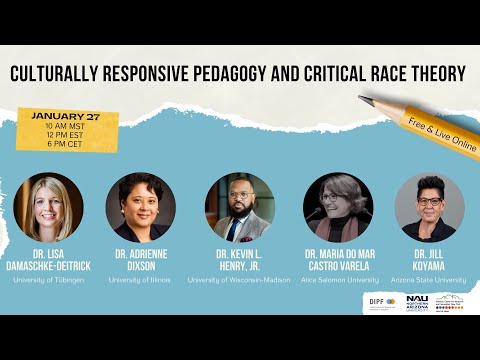
To play the video, click the thumbnail. Once activated data will be transmitted to the respective provider. Watch on YouTube
Speaker Update
Please note that unfortunately Dr. Yasemin Karakaşoğlu will no longer be able to participate. However, we’re delighted to have Dr. María do Mar Castro Varela join the panel.
Event Information
January 27, 2022, 12:00 PM to 1:30 PM
Online
Organizer(s): Northern Arizona University, DIPF, DWIH New York
Abstract
Education as a way to build a common citizenry amidst diversity is not entirely new and can be traced to the rise of nation states out of cosmopolitanism. Indeed, U.S. educators borrowed models of the common school from Germany in the 1800s as well as the traditional purpose of schooling from ancient times: to bring people to as full of a realization as possible of what it is to be a human being.
Today’s schools are also confronted with new challenges and opportunities from internal cosmopolitanism within nation-states, and the U.S. continues to confront its historical legacy of racism and racial inequality since slavery. Culturally responsive pedagogy developed over two decades ago to recognizes the importance of including students’ cultural assets in all aspects of learning and to offer full, equitable access to education for students from all cultures (Ladson-Billings, 1994).
Critical race theory developed as an analytical framework for graduate study in universities and uses history and social reality to explain how racism operates in American law and culture.
Both culturally responsive pedagogy and critical race theory are now the subject of heated debate in the media, in universities, and at local school board meetings in the U.S, and, despite the fact that large numbers of migrant students participate in the German school system for several decades, the topic of racism is more recent in German debates. Panelists provide an historical and contemporary perspective on these debates as well as strategies for assets-based education amidst the contemporary situation.
Panelists
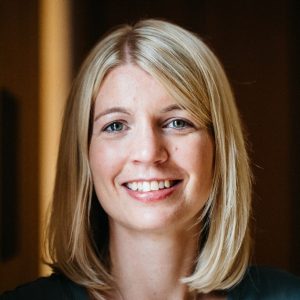
Dr. Lisa Damaschke-Deitrick is Senior Lecturer and Researcher at the Institute of Political Science at the University of Tübingen, Germany. She previously worked as a Professor of Practice of Comparative and International Education at Lehigh University, Pennsylvania. She holds a Doctorate in Social Sciences from the University of Tübingen, a M.Sc. in International Relations from the Free University Amsterdam, The Netherlands, and a B.A. in Political Science from the University of Bielefeld, Germany. Her research focuses on how education policy is used as a solution or cure-all for societal issues in an international and comparative perspective. She conducts research on educational policies and practices designed to facilitate refugee youth’s participation in their new host societies. Her research areas further include refugee integration in schools and institutions of higher education, and educational poverty policies and programs for school dropouts. She has extensive experience conducting teacher training for the education of refugees.Dr. Lisa Damaschke-Deitrick, University of Tübingen
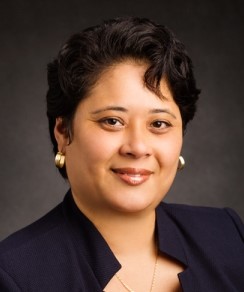
Dr. Adrienne Dixson is a Professor in Education, Policy, Organization, and Leadership at the University of Illinois. Her primary research interest focuses on how issues of race, class and gender intersect and impact educational equity in urban schooling contexts. She locates her research within two theoretical frameworks: Critical Race Theory and Black feminist theories. She co-edited (with Celia K. Rousseau-Anderson) CRT in Education: All God's Children Got a Song (2006, Routledge) one of the first book-length texts on CRT in education. Most recently, she has been interested in how educational equity is mediated by school reform policies in the urban south. Specifically, she is interested in school reform in post-Katrina New Orleans, how local actors make sense of and experience those reform policies and how those policies become or are "racialized."Dr. Adrienne Dixson, University of Illinois
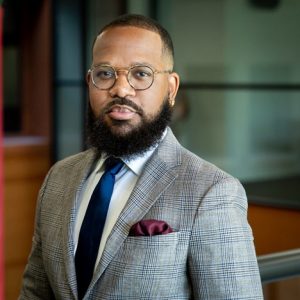
Dr. Kevin Lawrence Henry, Jr. is an Assistant Professor of Educational Leadership and Policy Analysis at the University of Wisconsin-Madison. Dr. Henry’s interdisciplinary program of research and teaching revolves around two central, interrelated questions. The first question critically examines how power and dominance shape and structure educational policies, practices, and reforms. His second question is concerned with how Black educational actors understand, resist, reconstitute, and transform educational fields to be equitable, just, and humanizing. More specifically, Dr. Henry’s research investigates: the racialized lived realities of charter schools and school choice policy and practice; the persistence of anti-Blackness in education; neoliberalism and educational markets; and culturally relevant and restorative justice approaches in education. Dr. Henry’s work is informed by Black Studies, Critical Race Theory, Feminist Theories, and Queer of Color Critique.Dr. Kevin Lawrence Henry, Jr., University of Wisconsin-Madison
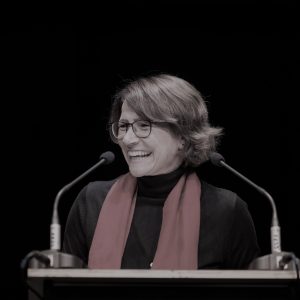
Dr. Maria do Mar Castro Varela is a professor of Pedagogy and Social Work at the Alice Salomon University of Applied Science in Berlin. She holds a double degree in Psychology and Pedagogy and a PhD in Political Science. Her research interests lie in Postcolonial Theory, Queer Studies, Critical Migration Studies, Critical (Adult-)Education, Trauma Studies, and Conspiracy Theories. Amongst others, she was awarded the Sir Peter Ustinov Visiting Professorship at the University of Vienna and was a Senior Fellow of the Institute for the Human Science (IWM) in Vienna and at the Institute for International Law and the Humanities (IILAH) in Melbourne. María do Mar is the founder of the bildungsLab* in Berlin and chair of the Berlin Institute for Contrapunctual Social Analysis (BIKA).Dr. Maria do Mar Castro Varela, Alice Salomon University of Applied Science in Berlin
Moderator
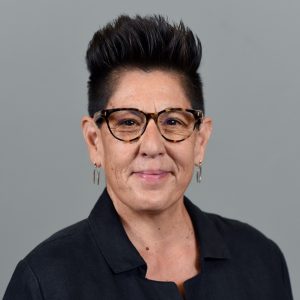
Dr. Jill Koyama, a cultural anthropologist, serves as Professor and Vice Dean of the Division of Educational Leadership and Innovation in Arizona State University’s Mary Lou Fulton Teachers College. Her research is situated across several integrated strands of inquiry: the productive social assemblage of policy; the controversies of globalizing educational policy; the politics of immigrant and refugee education; and community organizing and activism. For the past fourteen years, Dr. Koyama’s research has centered on how, even under dire circumstances and inhospitable politics, displaced people access and create resource-rich networks, make space for themselves and their families, and take civic action in the United States. Such research has led her to challenge notions of global citizenship and interrogate traditional pathways of civic engagement, leadership, and education.Dr. Jill Koyama, Arizona State University
Organizers
Dr. Annika Wilmers, Senior Researcher, DIPF | Leibniz Institute for Research and Information in Education
Dr. Rose Ylimaki, the Del and Jewell Lewis Endowed Chair in Leadership in the College of Education, Northern Arizona University
